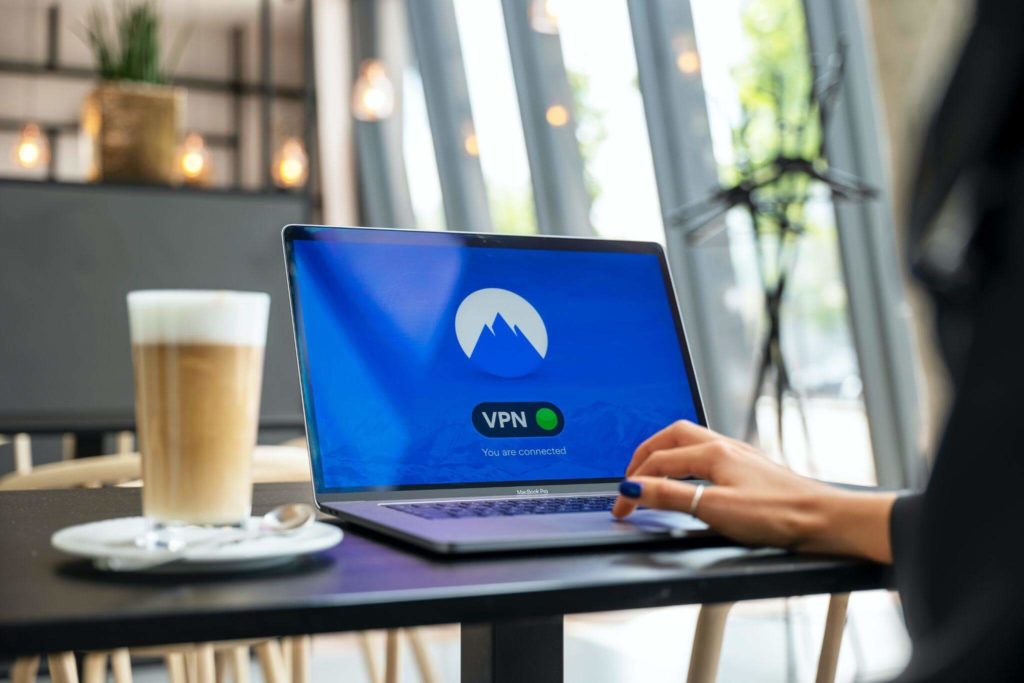Common VPN Scams You Should Be Aware Of
VPN scams are rapidly growing in today’s world. With the increase in demand for online security and internet privacy, opting for a VPN service is becoming more mainstream. Sadly, shady characters use this opportunity to take advantage of ordinary people.
By making yourself aware, you can avoid becoming a victim of common VPN scams. Here are some issues that you must avoid to stay safe. In this article, we'll expose 6 common VPN traps and publish the results of our testing for the most trustworthy VPN service out there. Let's begin.
Scam Detectors Most Trusted Websites in Online Security
- Guard.io (100): Surf the web safely. Clean up your browser, remove maliscious extensions and check for privacy violations.
- Incogni.com (100): Delete your personal data from the internet and protect against scams and identity theft.
- ExpressVPN (100) Stay secure and anonymous online - Best VPN Out There

1. Lifetime VPN Subscription Scam
You might have come across VPN service providers that claim to provide you with a lifetime VPN subscription. The price would also have been cheaper that would have brought your attention. But, you should be aware that it is expensive to run a secure, safe, and fast network of VPN servers with good support.
These cheap or free VPN providers collect the user’s data and sell them to a third party for advertising purposes. It is a popular scam, and most free VPN providers use this business model to earn money. They will redirect you quickly to a third-party website or blast you with ads that let them make a commission.
Often, they also cancel your “lifetime” subscription after a year or two. That is the actual duration for which such companies exist in the market. After selling their targeted lifetime subscriptions, the scammers will take all the money and close the business.
2. Fake VPN Services
Fake VPN can be found all over the internet. Differentiating between these fake VPN and genuine providers can be a tricky task. They would sell “VPN subscriptions” but with no VPN services, collect the money and run away. These providers also access your data like Wi-Fi data, social security information, and bank details. They would then sell this information to third parties in different ways.
The best VPNs will be transparent in their goals; they will share information like encryption systems, security protocols, how they work, and other services upfront. Always make sure that you go through the terms and conditions of the website carefully and look for any inconsistencies or contradictions.
3. Fake Reviews, Testimonials, and Comments
Do not trust the review of VPNs on a mobile app store. There are many fake reviews every week that would rate the app without even using the VPN. It takes a few weeks or perhaps even a few months to witness any negative experience.
Some users have experienced lying about encryption systems, logging and storing data, malware injected onto their devices, data sold to a third party, and IP addresses leaked.
You must do a diligence review and research of the VPN providers to understand their legitimacy. You can go through some famous review expert websites that are not affiliated with the provider. Most VPN scams use fake reviews.
4. Bogus VPN Claims and Faulty Features
The VPN market is full of faulty features and false claims. A few examples are:
- The IP address “leak protection” features: Many VPNs claim that they have features like leak protection, but they don’t work. You can verify this by running the VPNs through a variety of checks and tests.
- “Fastest” VPN- You will find a lot of service providers that promise you to be the “world’s fastest VPN.” It is undoubtedly a marketing gimmick as most VPNs have average speeds as their servers are overloaded with users.
- No logs: Many VPN providers claim they are “logless” or save “no logs,” but they carefully disclose this information. You should always read the privacy policy (the fine print) to ensure they deliver you what they promise.
5. VPNs with Questionable Pricing
When choosing a service provider, you should be aware of paying an enormous sum of money as much as while determining a free service. Take a note of how much you will be paying and how frequently you will have to pay.
A lot of scandals run in the market that asks for as much as $400 per month. If you find typos, misprints in the pricing, or grammatical errors in their content, you should question their authenticity. Most providers bill you either monthly, bi-annually, or annually. Few genuine providers will ask you for monthly payments, and it should ideally cost you $40-$99 per year.
6. VPNs That Require Too Much Private Info
Be careful of any provider that asks you for a lot of personal information. VPN does not have to be tied with your identity to be used. Stay away from any VPNs that ask you to enter too much of your private information. Also, if they accept bitcoins for payment, you should be more cautious as it will distance your identity from your account even further.
Researching well before purchasing a subscription of VPN can help you from falling into a scam. Using genuine online resources to understand the reviews and going through the fine prints can also prove to be helpful.
Trustworthy VPN Providers: The Winner
After the increased amount of hacking online over the last year, we've been asked several times what the most effective VPN providers on the market are. After trying many platforms ourselves, we would say the winner is Surfshark. There are many reasons for this choice, but the Top 3 are:
- Not only do they have an awarded VPN service, protecting your privacy, securing your identity, and preventing third parties from tracking your device, but they have a super efficient antivirus program. It offers protection from viruses and zero-day threats, a lightweight, clean, and easy-to-use app, and a 30-day money-back guarantee.
- They help you hide your online searches, which will get you purely organic search results, free from ads and tracking.
- They will notify you when your personal info is leaked online.
The best thing about it is that Surfshark offers 86% off + up to 5 months free for the Scam Detector readers. You can get the deal HERE.
How To Remove Your Personal Information From The Internet
However, if it's a bit too late and your personal information is leaked online, we have good news. If you wonder how to remove your private data from the Internet, you should get a service like Incogni, see below. It is a trustworthy powerful privacy tool that requests your data removal from almost a hundred brokers on your behalf. The service is verified by our staff and is legitimate. For only $5.79US/month, it's totally worth it. Click below to remove your personal data from the Internet:
How To Report a VPN Scam
Let your family and friends know about these six VPN scams by sharing this article on social media. You can also officially report scammers and any other suspicious activity to the Federal Trade Commission using this link, below:
How To Protect Yourself More
If you want to receive the most notorious scams via email, feel free to subscribe to the Scam Detector newsletter. You'll receive periodic emails – we promise not to spam.
Meanwhile, educate yourself with some other cybersecurity-related articles below, so that you know how to stay safe online. Last but not least, use the comments section below to expose other VPN scammers.
4 Cybersecurity Measures You Should Take Right Now
VPN Fraud – What They Don't Wan You To Know
Verify a website below
Are you just about to make a purchase online? See if the website is legit with our validator:
vldtr®


TOP 4 MUST-WATCH FRAUD PREVENTION VIDEOS
1. Top 5 Amazon Scams in 2024 2. Top 5 PayPal Scams in 2024 3. How To Spot a Scam Email in 2024
- Latest Posts by Selma Hrynchuk
-
How To Stop Robocalls
- -
Taking Control of Your Data Privacy: Protecting Yourself in 2024
- -
The Urgency of Removing Personal Information from the Internet
- All Posts















Your information is very helpful. I am worried about a company I just signed up for called Metacom / Geeks 365. Computer security, it is saying when I check it out that it is 65/100 legitimate. Is that safe enough? I sent them an electronic check. Are they legitimate enough to trust? Will my bank account be compromised and will they take all my money out of my account, will they sell my information.? Have you had any bad reviews about them?
I have an Apple app called The Guardian. It is free for iPhones. It gives me info of other “entities” that have tried to follow but were blocked.
Is The Guardian a fake VPN then?
I have an app called Home Guardian VPN that I use. Max the guardian gives me info about other things trying to follow but we’re prevented a certain number of things that were prevented getting info.
Is this one fake too? I got from Apple apps for my iPhone.